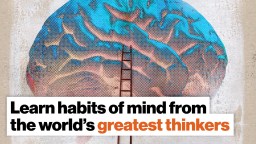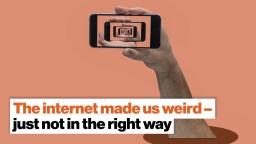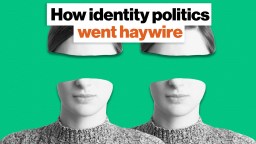intelligence
A study at Rutgers University details the importance of this parent-child bond.
From deejays to Debussy, it’s all brain food.
A recent study gives new meaning to the saying “fake it ’til you make it.”
Smart people are not afraid to say “I don’t know.”
A new study finds such kids excel in all cognitive areas.
This story was originally published in Aeon and has been republished under Creative Commons.
Keith Whittington, Professor of Politics at Princeton University, breaks down three key free speech arguments by John Stuart Mill.
▸
6 min
—
with
Dividing students according to their abilities has little effect on learning and further entrenches socio-economic inequality. Is it time to stop?
Books that will sharpen the youthful mind.
A long-ridiculed theory about humankind’s early leap of consciousness is revived.
At Big Think, we capture the thoughts of the world’s most brilliant thinkers.
▸
8 min
—
with
Education shouldn’t just be about preparing us for the workforce. It should prepare us for life.
Have swipes and scrolls replaced deep thinking?
▸
4 min
—
with
This may be more common in mammals than we’d thought.
Our egotism and self-confidence can sometimes spill-over to our loved ones.
Being on shaky financial footing is making Americans dumber.
▸
4 min
—
with
Though written for his students, the lessons can be applied by any essay writer.
A new study suggests that reframing goals can help smart people avoid choking under pressure.
The older we are, the less our chronological age may say about us.
▸
3 min
—
with
The plan to stop megacorps from owning superintelligence is already underway.
▸
4 min
—
with
Russia’s famed intelligence agency was often successful in getting American secrets.
Some books had a profound influence on Einstein’s thinking and theories.
Almost 200 cognitive biases rule our everyday thinking. A new codex boils them down to 4.
A new study from Oregon State University makes it clear: it’s you.
Even some teachers suffer from anxiety about math.
New research on the public’s opinion about genetically modified foods illustrates an alarming cognitive bias.
The dogs’ ability to recognise and process human faces surpasses even that of monkeys. This newly-identified brain region may be the reason why.
Why free thought has died on university campuses.
▸
4 min
—
with





























